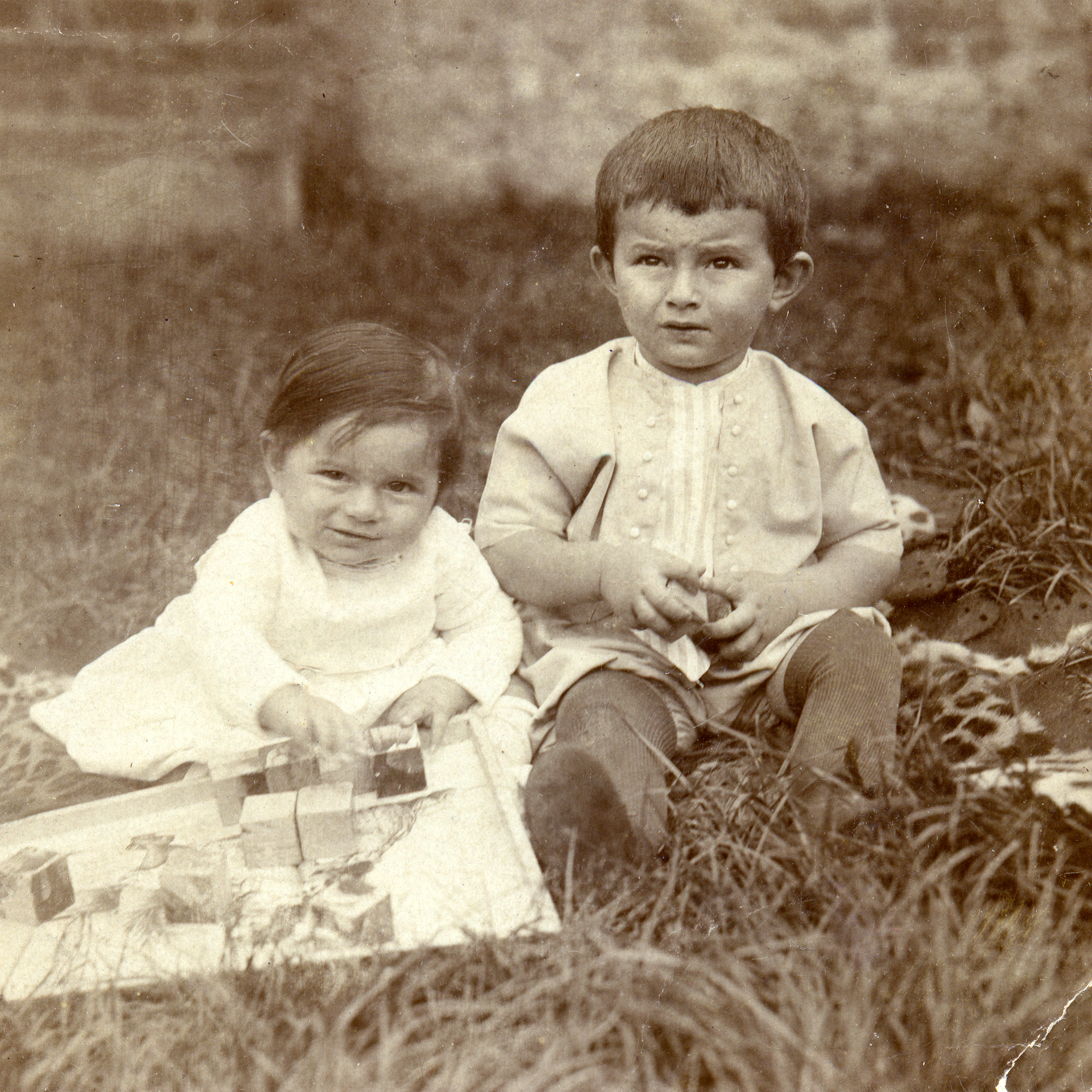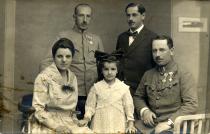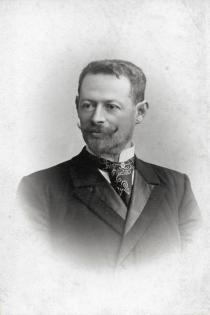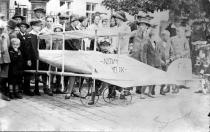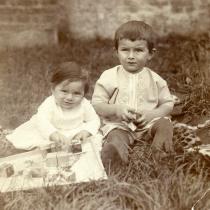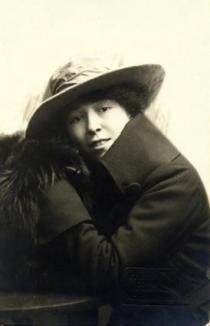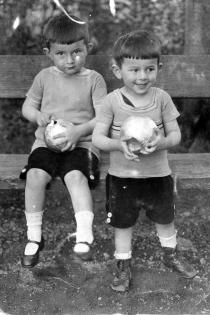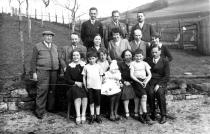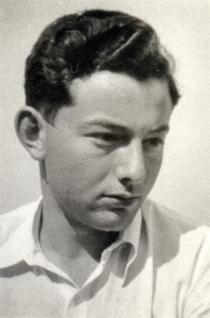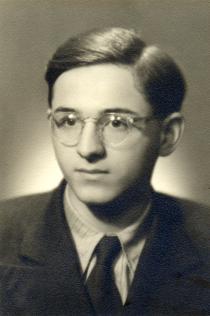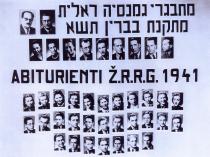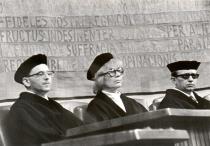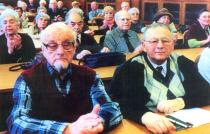This photograph is from the 1920s, I can't say with certainty exactly how old my brother and I were at the time.
The older boy is my brother Frantisek, I'm the younger one in the white shirt. We're playing with wooden blocks in our garden in Vysoke Myto.
We also had a German tutor so that we would learn German. We also had maids living in our household, who took care of it and cleaned, of course they didn't have to do the laundry or iron, that was all done as part of the firm's activities.
When our father died and our mother didn't have enough time for us, the maids would make us lunch and so on. Later, when we were badly off, and Hitler was approaching, our mother did everything herself and had no servants.
We had a nice one-story house with a large courtyard. My mother got it from my grandfather [Moritz Pfeifer] as her dowry. We had four rooms and an enormous kitchen, where the maids lived.
When Hitler was advancing and poverty came, we started to rent some of the rooms, which were workshops. Thus the house progressively shrank, until we were left with two rooms - the former kitchen and our children's room.
When we still had three rooms, the kitchen, living room and bedroom, my mother's company still existed, or perhaps just scraped by.
One room was used for receiving visits from rich customers from the surrounding region, who were having nightshirts embroidered.
When some lady customer came and wanted something embroidered, she would be led into our home and we poor boys had no place to hide.
Our home still functioned as a receiving salon, and we lived in the kitchen, which was the smallest room.
Then of course the Germans forced us even out of there. But we stayed in the building, we lived in the courtyard gallery, where we got the poorest apartment.
By chance, the lady it belonged to had tuberculosis and unfortunately her children had died, she lived in a sanatorium, so we made an agreement with her - she rented it to us - and the Germans let us live there.
While we still lived in that reduced, but original apartment, the Germans moved Mr. Klazar, who worked for the revenue department and was an excellent person, into the space beside us. There was a boarded-up door between his rooms and ours.
We made that boarding removable. When the Germans prohibited us from listening to the radio, we used to go over to Mr. Klazar's and listen to [Radio] London.
